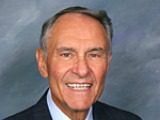Jefferson can thank Lincoln for the current interpretation that Jefferson’s Declaration of Independence forms the basis for all minority rights. Jefferson’s pre-amble states that “all men are created equal, that they are endowed by their Creator with certain unalienable rights, that among these are life, liberty and the pursuit of happiness.” According to Jeffersonian scholar Joseph J. Ellis (American Creation), “The delegates re-garded the preamble as a mere rhetorical flourish designed to introduce the more seri-ous business. No one paid any attention at the time to the preamble and none of the Founding Fathers envisioned the later interpretation. And there is no evidence that Jefferson himself had any inkling that he had written the seminal statement of the American prom-ise. The purpose of the Declaration was to be an indictment against the British King, with a list of grievances to justify independence.” Jefferson, who owned some 200 slaves at the time of his Declaration, assumed no responsibility for slavery and in his Declaration blamed the slave trade on the King.
In Lincoln’s famous 1858 Senatorial debate with Sen. Stephen Douglas, the argu-ment centered on the intent of the Founding Fathers. Douglas stated; “I hold that this Government was made by white men, for the benefit of white men and their posterity forever…the Signers of the Declaration of Independence had no reference whatsoever to the Negro, when they declared (in the pre-amble) that all men have been created equal.” Lincoln disagreed and argued that slavery was morally wrong and it should not be included in the new territories. That was the major issue at the time. Although the Constitution was silent as to the word “slave,” Lincoln found a clause buried in the Constitution that provided that the “migra-tion or importation of such persons as any of the States now existing shall think proper to admit, shall not be prohibited by Congress prior to 1808.” Lincoln interpreted that to mean that the founders earmarked slavery for extinction. Lincoln then argued that in Jefferson’s preamble the Negro was entitled to all that the Declaration holds out, namely, “life, liberty and the pursuit of happiness.” (Notice that Lincoln did not use the phrase “equality” or he could not possibly get elected). With the exception of several slaves related to his slave-concubine Sally Hemings, Jefferson freed none of his slaves at time of his death. George Washington freed all of his slaves on the death of his wife. Since Lincoln, Jefferson’s 55 word “preamble” has grown in meaning to be-come the seminal statement for a mandate for individual rights, “that eventually ended slavery and sanctioned the civil rights of all minorities.” Although Jefferson was an out-standing president, with superb accomplish-ments, his weakness was slavery.






